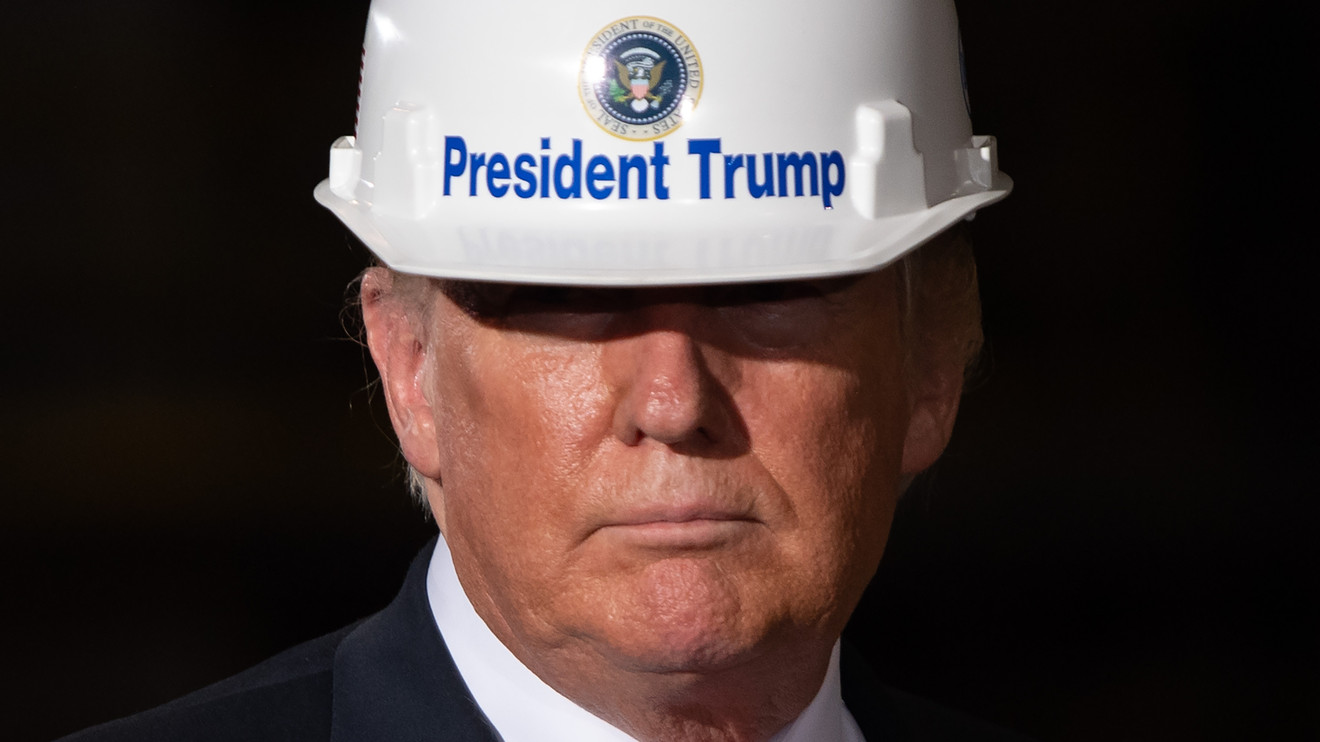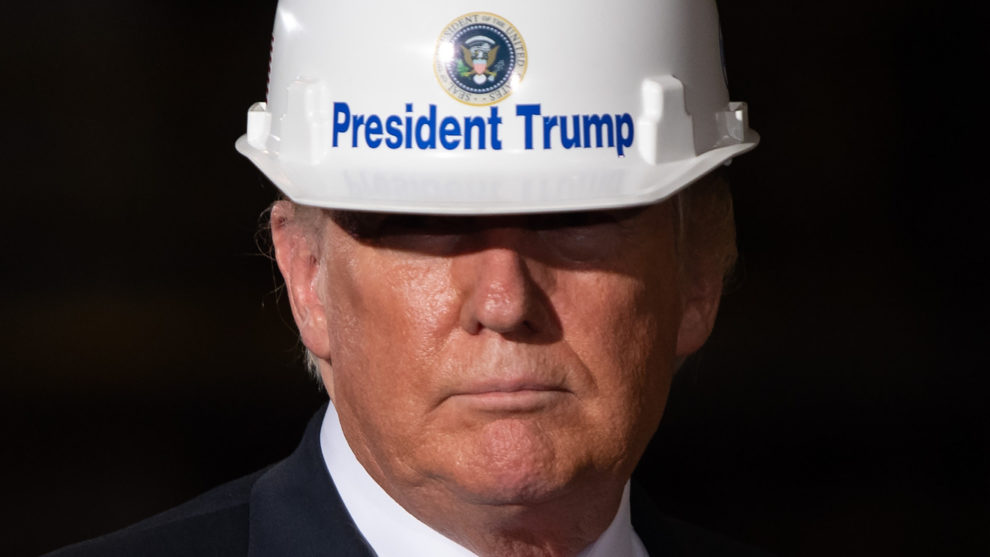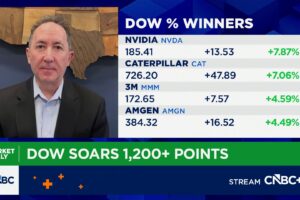
Steel producer stocks rallied Monday, to buck the selloff in the broader stock market, after President Donald Trump said he was bringing back tariffs on steel imports from Brazil and Argentina, as retaliation for currency devaluations.
Shares of AK Steel Holding Corp. AKS, +4.71% ran up 4.5% in afternoon trading, U.S. Steel Corp X, +4.19% rose 3.7% and Nucor Corp. NUE, +0.50% advanced 0.5%.
Steel Dynamics Inc.’s stock STLD, +1.25% gained 1.5%, Commercial Metals Co. CMC, +1.40% rose 1.0% and TimkenSteel Corp. TMST, +4.12% tacked on 2.9%.
The gains were a silver lining for investors, as the tariffs helped trigger a market selloff, with the Dow Jones Industrial Average dropping 211 points, or 0.8%, the S&P 500 index losing 0.7% and the Nasdaq Composite Index falling 1.0%. See Market Snapshot.
Trump tweeted that the tariffs were “effective immediately,” and were a response to the “massive devaluation” of currencies which hurt U.S. farmers. Brazil’s real has fallen more than 9% against the U.S. dollar over the past year, while Argentina’s peso has tumbled 59%.
Both Brazil and Argentina had received exemptions from the 25% tariffs on steel imports imposed in 2018. The reinstated tariffs come as the U.S. and China appear to be struggling to finalize the first phase of a trade deal.
Don’t miss: China furious, while Hong Kong celebrates after U.S. legislation.
Analyst Tyler Kenyon cautioned that investors shouldn’t view the tariffs as a game changer for steel makers, given the small size of the Brazilian and Argentine markets. In fact, Kenyon said the tariffs could end up being a negative as they could lead to higher production costs.
“We view [the tariffs] as only a marginal [positive] for finished steel supply and steel mills under coverage with finiusdshed steel imports from both countries [of less than] 4% of total,” Kenyon wrote in a note to clients. “With Brazil a sizeable source of slab import supply, production costs for sheet + plate re-rollers would be adversely impacted, lifting cost curves.”
Kenyon said the duration of the tariffs and implications to other trade arbitration and re-negotiations are “key unknowns” which could change the landscape for finished steel demand and trade.
If the tariffs on Brazil remain for an extended time, Kenyon said 2020 production costs for companies with slab re-rolling operations in the U.S. would be negatively impacted.
“More costly slab from Brazil could lift the overall sheet + plate cost curve in the U.S., leading to a cost of production disadvantage versus the rest of the world,” Kenyon wrote. “This could invite more finished sheet and plate imports back into the U.S., assuming there is no corresponding adjustment to tariff rates for other global sources of U.S. sheet and plate supply.”
div > iframe { width: 100% !important; min-width: 300px; max-width: 800px; } ]]>









